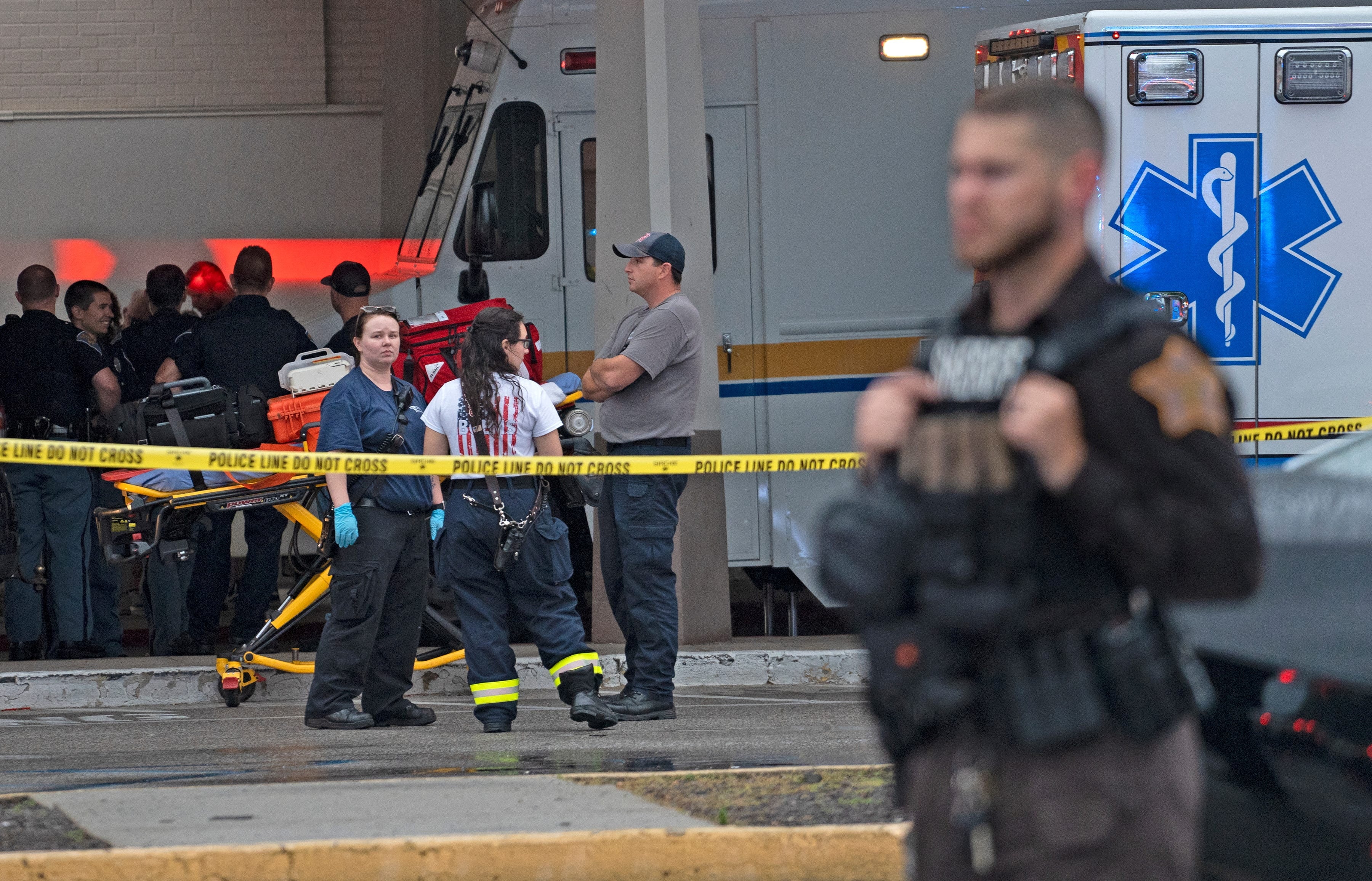Does shooting dead a dangerous killer make you a ‘good Samaritan’?
A mass shooting event in Indiana stretches the phrase to its absolute limits, writes Holly Baxter


It seems callous to say it, but it’s easy to get into the mindset of “another week, another shooting” when you report from the US. So it was that few of us in the New York bureau reacted with surprise when we heard that a man had entered an Indiana mall’s food court a few days ago with a semi-automatic weapon and opened fire.
What was, surprising, however, was what happened next. The shooter was “neutralised” – ie killed – by a passerby who had travelled to the mall with his girlfriend and a legally owned handgun. Here was the “good guy with a gun” that Republicans always talk about when school shootings happen. Elisjsha Dicken reportedly told his 19-year-old girlfriend to get down before taking aim at the shooter, who had fatally wounded three people within a minute. Police at the scene said that the shooter was killed in “under two minutes” initially, and then revised that estimate to a number of seconds. Dicken had no military or police training, despite having impressive aim from the opposite side of the food court, and said he’d been taught to shoot by his grandfather.
Every time a Parkland-type tragedy happens, NRA supporters love to float the idea that the solution is more guns, not fewer. They have suggested everything from keeping guns in locked boxes on teachers’ desks to arming children – everything except the one thing we know works from other countries, which is removing guns from the populace altogether. Most mass shootings could be stopped if every responsible citizen was armed, right-wingers claim. Yes, then more bad people might have access to firearms too, but they’d be less likely to use them if they knew everyone around them was packing heat. It’s essentially an argument about the merits of mutually assured destruction.
News reports about Dicken and police press conferences have repeatedly referred to him as a “good Samaritan” because of his actions. No doubt, Dicken did save the lives of multiple people that day. It’s clear the shooter was on a murderous rampage and he didn’t care who he hurt: the middle-aged couple enjoying food together who he took aim at first don’t seem to have been known to him, nor anyone else who was in his firing range. But referring to a passerby who shoots someone dead as a “good Samaritan” feels like stretching the phrase to its absolute limits. The tale of the good Samaritan is supposed to emphasise tolerance and compassion, rather than righteous violence.
Contained within the phrase is everything that seems wrong with evangelical Christian America. Rather than staying faithful to the spirit of Jesus’s teachings as they’re described in the New Testament – tolerance, compassion, kindness and flexibility in the face of hardline doctrine – Christianity in the US often means intolerance, macho violence and extreme zeal. Though the Bible doesn’t say life starts at conception and doesn’t in fact say anything direct about abortion at all, such Christians jump to ban women’s access to reproductive healthcare. And while the Bible absolutely does talk about “turning the other cheek” and minimising violence toward each other, the very same people often talk about their “God-given right” to carry weapons that should really only belong on the battlefield. Many of them also support the death penalty.
It is a confusing landscape, one which makes good-faith debate difficult. There’s no doubt Elisjsha Dicken is a hero. But so long as he is unquestioningly called a good Samaritan, too, the problem with an ideology that calls itself Christian while failing to live up to many Christian standards at all will persist — and the people who support it will continue to claim that they’re acting on behalf of God. And what are liberals supposed to reply to that?
Yours,
Holly Baxter
Head of opinion (US)



Join our commenting forum
Join thought-provoking conversations, follow other Independent readers and see their replies
Comments